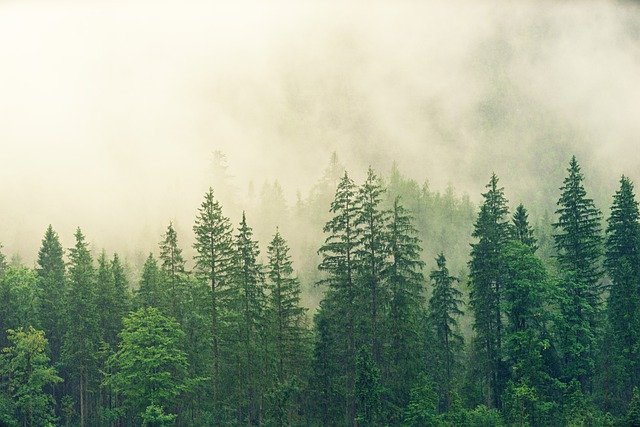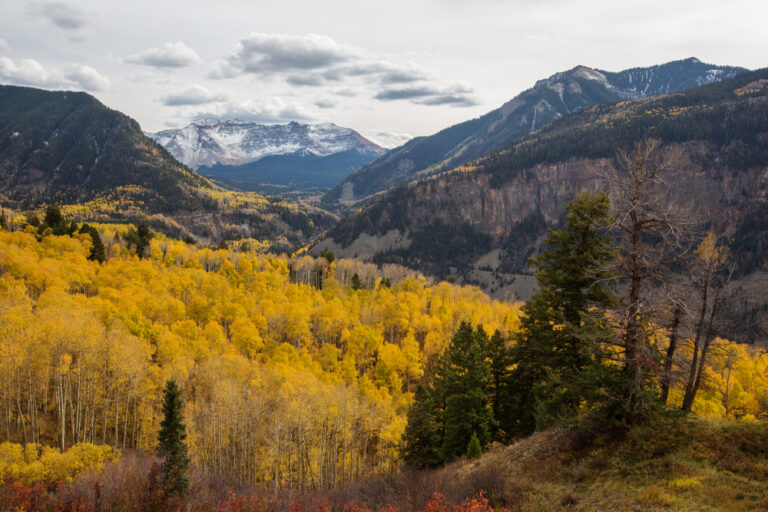
There’s a saying that the good ole’ days ain’t what they use to be. That’s certainly true when it comes to National Forest campgrounds around the US.
In the good ole’ days you could pull up your RV to a national forest for camping and be sure to find a suitable spot. Sadly, that might all be coming to an end.

Recently a budget decision in Colorado spurred concern throughout the RV community. It happened in the San Juan National Forest where services have been severely slashed over the past 10 years. The forest service has lost more than 1 million dollars in its annual revenue and is having a tough time keeping up.
Public demand for access to national forests is up, but the cost of caring for 2 million acres is up as well.
The San Juan National Forest is a treasure to anyone who loves the great outdoors. This vast forest touches 10 different counties in the western region of Colorado. The forest service says it lacks over $3 million dollars desperately needed for maintenance, and with the new cuts can see no way to preserve the space.
But how do you decide what to cut? The first to go will be campgrounds and trail access. They are too expensive to keep up. The public will have to look elsewhere. If you don’t feel concerned about the situation, think again. If this is happening in Colorado, odds are it will happen in a national forest near you.
So what are the options? Most national forest service campgrounds offer few, if any, amenities which means RVers do without electricity and water in order to stay at these campgrounds, so why not get rid of the campground altogether?
Here’s what I mean. There are many places in the national forests where camping is permitted in non-developed areas. This practice is commonly called dispersed camping or boondocking. The practice is usually described as camping at no charge outside of a designated campground. With no need for hook ups or facilities, there is no need for the dwindling budget to be spent on maintaining the campgrounds.
Of course, as with anything there would have to be guidelines and those come with concerns.
- RVs would have to park on bare soil and not on grass and plants. People are often insensitive when it comes to natural preservation, so guiding people to acceptable spots would be a challenge.
- There would need to be a distance of space required between you and other campers. RVers would need to stay a distance away from water and from wildlife preserves.
- RVers would need to park on the edge of meadows, fields, or underbrush. Learning to preserve nature would play a big part in this program’s success.
- Fire regulations would be imperative. No firewood could be cut and in many cases, no fire ring would be available for use. RVers would need to be ultra-careful during the dry summer seasons.
- Garbage would have to be hauled out with your rig. Dumping would not be permitted outside of official stations
- There would need to be some form of check-in so that the forest service knew where you planned to boondock and could keep a general eye on things. There are areas they do not want you to dry camp, and those areas would be off-limits.
All six of these suggestions are already happening in many national forests. The question is, will the public be responsible enough to be trusted? Many forest rangers have their doubts. In response, I would like to remind the government that dispersed camping is already allowed in many national forests around the country.
As budgets tighten we may need to revert to this tried and true system. The advantages are endless and the opportunity for boondocking is worth the extra effort. Nope, the good ole days ain’t what they use to be. We may lose our official campgrounds, but instead, we might actually enjoy the great outdoors.
What do you think? Have you ever boondocked in a national forest? If so, do you have any suggestions? Like this article? Share it with your friends.
To read more, check out RV BoondockingNews.com

